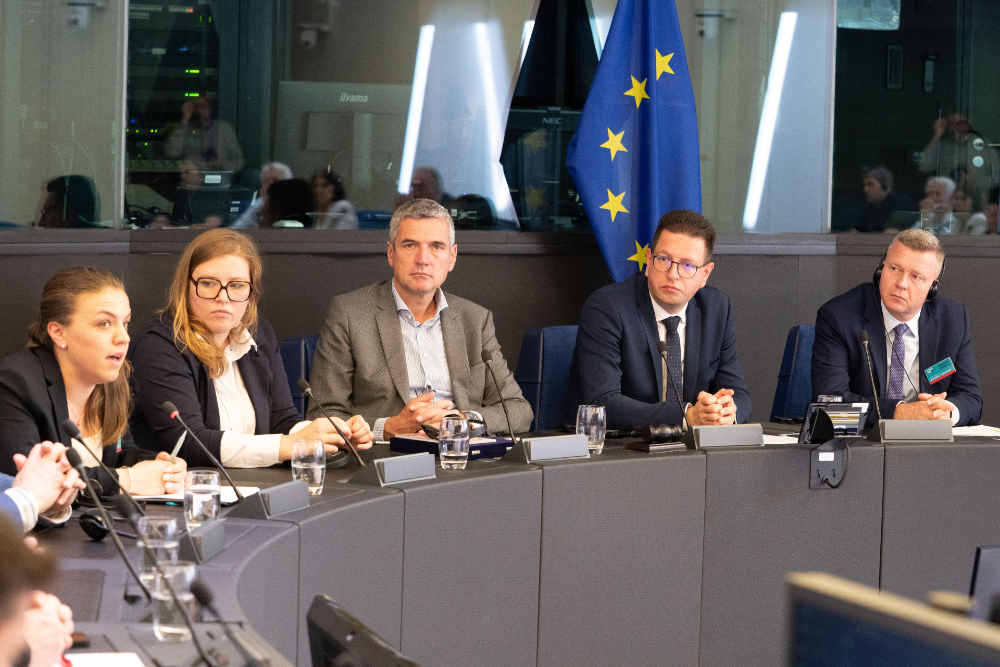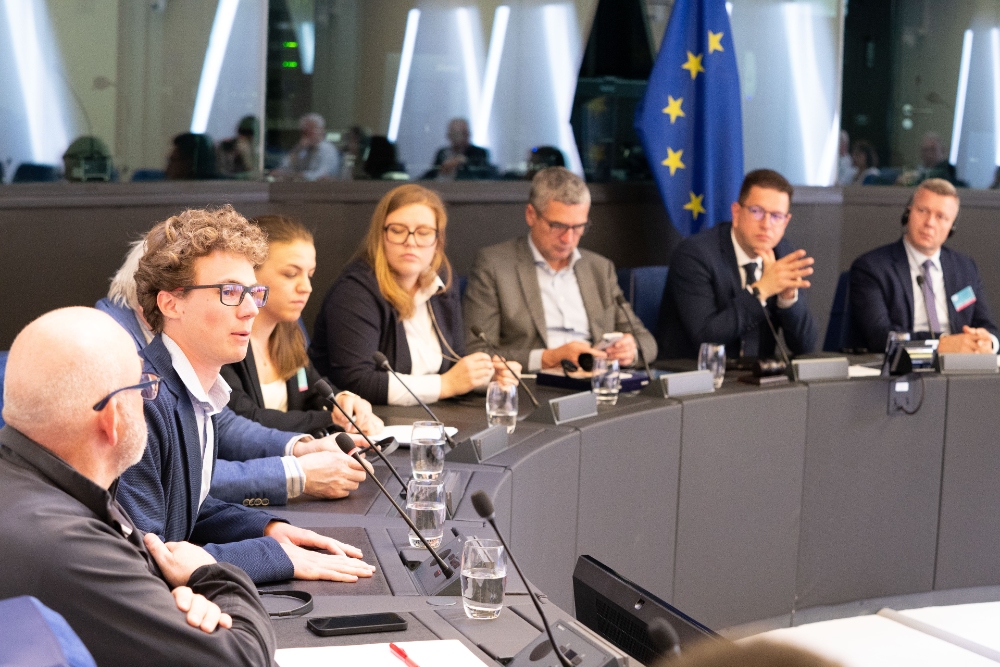
The Ladins in Belluno and Hungarians in Slovakia were the guests of the Minority Intergroup
10.06.2022Two minority communities presented themselves and their current issues at the meeting of the European Parliament`s Intergroup for Traditional Minorities, National Communities and Languages on Thursday, 9 June 2022.
In the first part of the meeting, based on the proposal of MEP Herbert Dorfmann, representatives of the Ladin-speaking community in the province of Belluno in the Veneto region presented the challenges the minority is facing and brought forward their requests to the Intergroup. With 54,492 ladin speakers, the minority in the Belluno province represents 28% of the resident population in the province, living on 1,860 km², equal to 51% of the provincial territory. The history and language are very similar to the Ladin-speaking minority in the Dolomites. However, whereas the Ladin-speaking minority in the autonomously governed neighbouring provinces of South-Tyrol (Trento and Bolzano) enjoys high protection standards, the Ladin-speaking minority in the Belluno province is denied autonomous administration and thus, is facing difficulties in implementing high linguistic protection standards. This leads inevitably in the long run to depopulation, lack of social cohesion as well as economic depreciation of the territory. In the frame of the intergroup meeting, representatives of the Ladin-speaking community presented a recently conducted report on this issue.
The Ladin representatives called on the members of the Intergroup to promote a resolution of the European Parliament to preserve the Ladin in the Belluno Province and to make this issue known, and to urge the Italian government to and Veneto Region to guarantee the rights of the Ladin minority in the province. They also invited the Intergroup members to visit their community.

As the second topic on the June agenda, at the proposal of Intergroup co-chair and FUEN president Loránt Vincze, the Intergroup received an overview of the situation of the Hungarian community in Slovakia. Mr. Krisztián Forró, the Chairman of the Szövetség-Aliancia party, interpreted the results of the 2021 census according to which 7.7% of the country's population belongs to the Hungarian community (422.000 persons, with an additional 34.000 declaring Hungarian as a second ethnicity). Being the largest national minority of the country, the Hungarian community still lacks appropriate protection standards, which could help prevent assimilation and further negative demographic changes in affected regions. Although the number of Hungarian did not decrease rapidly in the last ten years, the number of people declaring Hungarian as their mother tongue has decreased by 45.000, which, according to Mr. Forró, shows that the Slovakian government did little to nothing to prevent language loss.
The Szövetség-Aliancia party leader pointed out that although the Heger government had ambitious plans regarding the situation of minorities, including a preparation of a law on national minorities, setting up an office of minorities and even to make minority language an official language in self-governing regions, so far nothing came to fruition.
At the meeting some specific topics such as the recently revealed land confiscations on the grounds of the so-called Benes-decrees and environmental issues concerning the regions inhabited by the community were also highlighted.
SAJTÓKÖZLEMÉNYEK
- FUEN wishes you a peaceful Christmas season, restful days and a bright, hopeful start to the new year!
- FUEN calls on the EU to act over systematic ethnic-based land confiscations in Slovakia
- Women of Minorities conference in Budapest calls for structural change to ensure equal political participation of minority women
- FUEN President Olivia Schubert at UN Forum on Minority Issues in Geneva
- "Laboratory of Peace": 28th Seminar of Slavic Minorities held in European Capital of Culture Gorica/Gorizia
- Equality in Political Participation and Representation: Third “Women of Minorities” Conference to Be Held in Budapest
- FUEN Working Group on Education discusses challenges and future of minority schooling in Europe
- 28th Seminar of Slavic Minorities in Europe to take place in Gorica/Gorizia, Italy
- Olivia Schubert in her first interview as FUEN President
- FUEN Assembly of Delegates elects new leadership – Olivia Schubert becomes new President














